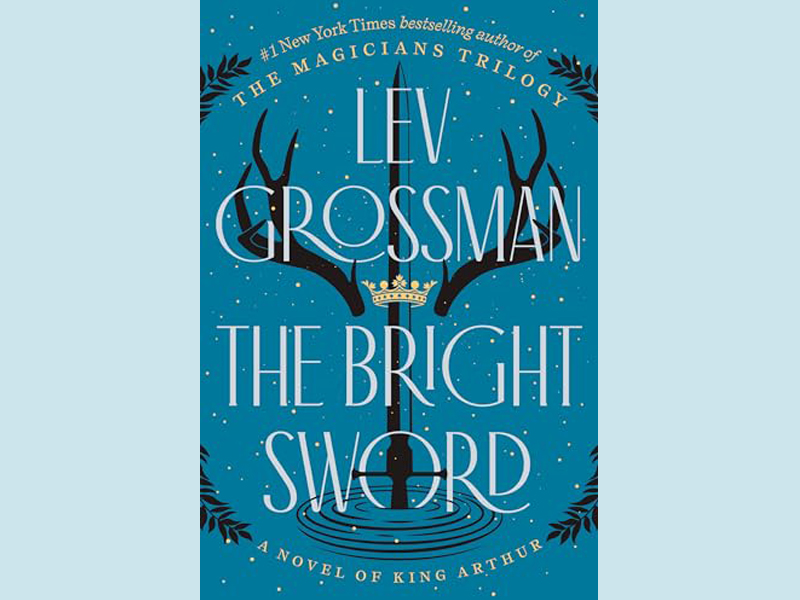Everybody knows that Arthur is the once and future king of Britain. The premise of Lev Grossman’s latest sprawling fantasy is to explore what happens in the early part of that huge chunk of – ongoing – time between Arthur’s death and his as-yet-unrealised return. It’s a good premise, with a vast amount of storytelling leeway, and Grossman’s novel more or less lives up to it, producing a good book that could do with having been kept on a slightly narrower path.
So, Arthur is dead. All but a handful of the knights of the Round Table are dead. Guinevere’s confined to a monastery; Lancelot’s taking holy orders too (standard post-alleged-adultery procedure, it seems); and Morgan Le Fay’s gathering a fairy army to take the throne. But, being the dark ages, information travels slowly, so Collum – a 17-year-old aspiring knight of the Round Table from the island of Mull – has no idea that the Camelot he’s been making his way towards in his stolen armour and made-up back-story is not going to bear much relation to the Camelot that has fuelled his dreams since childhood.
The good news for Collum is that since the Round Table has been virtually wiped out, it’s a bit easier for the talented son of a fisherman to make it as a member, especially after he defeats a Green Knight (who may or may not be the Green Knight) in single combat. That sorted, the self-proclaimed ‘dregs’ of the Round Table set out on a quest to find themselves a new King.
Needless to say, in the best tradition of Arthurian legend, Collum turns out to be spectacularly good at killing people and to possess a lineage that’s somewhat more exalted than he thought. However, where Grossman’s non-Arthurian decision to try and humanise all his characters by presenting their early lives and motivations is where things get a bit sloppy. For many of the leading lights, Grossman basically just adds a load of daddy issues that he reverts to with irritating frequency. It would be unfair not to mention that some of the back stories really work: Nimue emerges as a great character; Palomides is nicely realised; Morgan Le Fay manages to be interestingly nuanced if inconsistently drawn. Even the nods at inclusivity with Bedivere’s homosexuality and Dinadan’s gender non-conformity aren’t overwhelmingly heavy-handed. It’s actually Arthur who comes out weakest of all, so it’s probably a good thing that he’s dead.
Ultimately, Grossman’s pop psychology (and his occasional frivolous chucking about of phrases with little regard to sense) are forgivable because if you’re into Arthuriana, The Bright Sword provides more than enough supernatural and political intrigue and bloodshed (aka fun) to allow one to cope with its imperfections.







Click here to change your cookie preferences